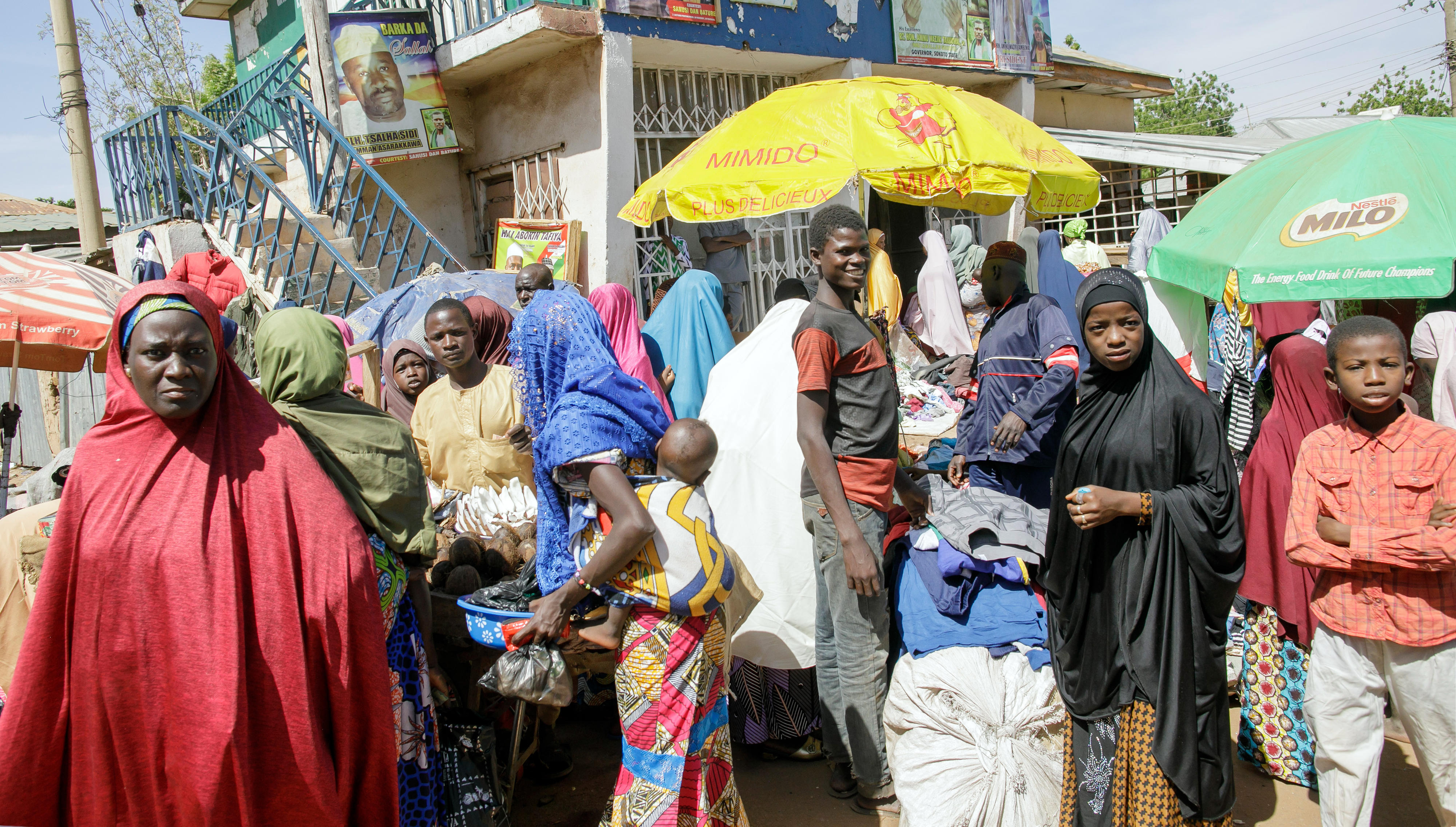Street scene in Sokoto, Nigeria
Copyright© Thomas Imo/photothek.net
Social situation Pervasive poverty and corruption
So far, the country's wealth of oil has only benefited a small elite. Cronyism and corruption are part of everyday life. On Transparency International's Corruption Perceptions Index for 2023 (External link), Nigeria is ranked 145th out of 180 countries evaluated.
Around 40 per cent of the people live below the national poverty line. If poverty is also measured in terms of further dimensions, such as health, education, employment and standard of living, more than 60 per cent of the people are considered poor. Living conditions in the northern part of the country, which had been neglected for decades, are significantly worse than in the southern part. At just 53 years, average life expectancy in Nigeria is one of the lowest in the world.
Various governmental support programmes, additional financial transfers to particularly disadvantaged regions and the emerging social protection system are intended to reduce inequalities. However, so far the impact of these measures has been limited.
The health and nutrition status of many people is extremely poor, with problems beginning right at birth. According to the World Bank, 111 out of 1,000 newborn children die before they reach the age of five. Only a little less than 30 per cent of the people have access to safe drinking water. Most people have no access to basic sanitation. About 70 per cent of the people are food insecure. Merely 60 per cent of the people are connected to the power grid. In rural areas, that rate is as low as 26 per cent. The illiteracy rate is almost 40 per cent.
Rapid population growth
Population growth in Nigeria is currently 2.4 per cent per year. The United Nations expects that the country's population will double by the middle of this century, reaching a total of 400 million. In 2022, 43 per cent of the people were below the age of 15.
In view of this high level of population growth, the economic growth of the past few years was far too low to facilitate sustained progress on development. The young generation, whose numbers are constantly growing, has very little prospect of getting access to formal jobs, housing or basic social protection. According to the National Bureau of Statistics, the informal employment rate in Nigeria's workforce is over 90 per cent. Every year, some 3.5 million young people are added to the labour market. Many decide to leave the country in search of better income opportunities.
The lack of prospects also poses a very great risk of conflict. According to the 2022 Afrobarometer (External link) survey, 70 to 80 per cent of Nigerians have little to no trust in government authorities, which are considered ineffective and corrupt. Widespread dissatisfaction with the actions of the country's political and economic elite is motivating young people in particular to join radical or criminal groups in order to be able to share in the country's wealth.
As at: 02/02/2024
